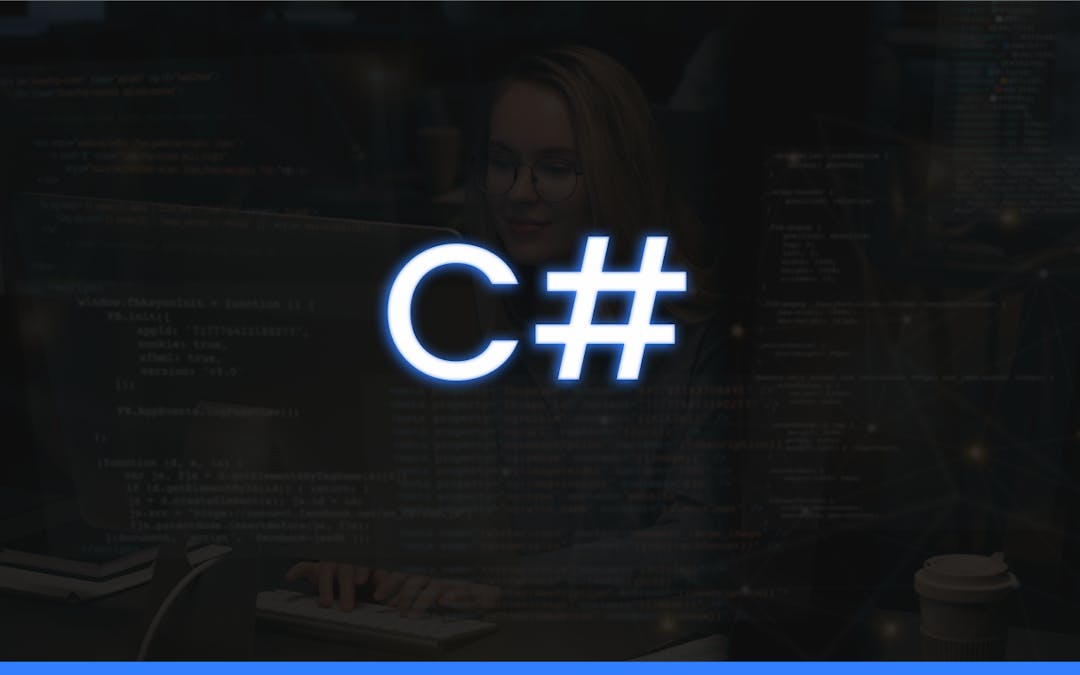A software engineer portfolio is a collection of work samples demonstrating a software engineer’s skills, capabilities, and experience. It typically includes examples of projects they’ve worked on, code samples, technical documentation, and other artifacts showcasing their technical abilities and problem-solving skills. You can present your portfolio in various formats, such as a personal website, a GitHub repository, or a digital document.
In other words, your software developer portfolio is the gateway to unlocking the career opportunities you’ve always wanted.
But how do you develop a software engineer portfolio that truly catches the eye of a technical hiring manager and leaves a lasting impression? How do you showcase your coding proficiency, the depth of your projects, and the unique vision you bring to the table?
We’ve got you covered. This blog post shares 10 invaluable tips, each designed to empower and guide you to develop a robust and captivating software engineer portfolio.
Also, read: Tech Resume Writing 2023: 10 Tips for Writing a Good Resume
Why do you need a strong software engineer portfolio for software engineering jobs?

Why do you need a strong software engineering portfolio for software engineering jobs?
Having a strong portfolio is crucial for getting a job in any field for the following reasons:
- To demonstrate skills and experience: As mentioned above, a portfolio provides tangible evidence of a software engineer’s skills, knowledge, and experience. It allows potential employers to see the quality of the engineer’s work, their coding style, and their ability to solve complex problems.
- To showcase a range of abilities: Employers want to see proof that you can handle their tasks and responsibilities well. A well-rounded portfolio can demonstrate a wide range of abilities, from coding to managerial and leadership skills. And so it can help an engineer stand out from other candidates competing for the same job.
- To provide talking points in interviews: A portfolio can be a focal point during job interviews. Engineers can refer to specific projects in their portfolio to explain their problem-solving approach, role in a team, or how they overcame challenges.
- To showcase continuous learning: By regularly updating their portfolio with new projects, software engineers can demonstrate their commitment to continuous learning and staying up-to-date with the latest technologies and methodologies.
- To increase visibility: A public portfolio can increase a software engineer’s visibility in the industry. To reach a wider audience, engineers can also share their portfolios on professional networking sites, social media, or personal websites.
Also, read: 7 Steps to Write an Effective Engineering Manager Resume

10 Tips for a software engineering portfolio
Tips for experienced software engineers
Building a strong software engineer portfolio is a crucial step in showcasing your skills and expertise to potential employers or clients. A well-crafted portfolio can demonstrate your ability to solve problems, create innovative solutions, and deliver results. If you have experience in software engineering jobs, here are some tips to help you create a strong software engineer portfolio:
- Choose a good domain name and web design
- Show your personality (in a professional way)
- Showcase the right projects
- Highlight open-source contributions
- Continuously update your portfolio
Choose a good domain name and web design:
The first impression of your software engineer portfolio should be great. Therefore, having a professional-looking website with a relevant domain name is essential. A domain name that is easy to remember and related to your area of expertise can help you stand out from the crowd. A clean, well-designed website can also make your work more accessible and help visitors navigate your portfolio more easily. Consider using platforms like GitHub Pages or WordPress to build your portfolio website.
Hints:
- Domain name: firstname-lastname-portfolio.com, which is memorable and easy to remember.
- Web design: The design and layout of your portfolio can say a lot about your personality. Are you minimalist and straightforward, or do you prefer a more creative and colorful style? The design can also reflect your attention to detail and your aesthetic sensibilities.
Show your personality (in a professional way):
Your portfolio should reflect who you are as a software engineer. Make sure your portfolio showcases your unique skills, strengths, and expertise. Consider adding a section that talks about your professional goals, interests, and achievements. Don’t be afraid to inject some personality into your work but keep it professional and relevant to your field.
Hints:
- About me section: An “About Me” section can provide more direct insight into your personality. You can share your values, your career goals, your hobbies outside of work, and other personal details that can help people get to know you.
- Testimonials: If you include testimonials from colleagues, clients, or mentors, these can show how you interact with others and what kind of team member you are.
- Blog: Including a blog section on the portfolio website that covers topics related to software engineering, such as tutorials, industry news, or personal opinions on trends and technologies.
Showcase the right projects:
Your portfolio should showcase your best work, and one of the best ways to do this is by highlighting your most impressive software engineer portfolio projects. Choose projects that demonstrate your technical abilities and show your potential clients or employers what you’re capable of. Make sure to include details on the project, including the problem it solves, the technologies used, and the results achieved. If possible, include screenshots or links to the project so that visitors can see your work in action.
Hints:
- Project selection: Present projects that showcase your skillset well. Your portfolio can have a blend of projects. For example, a task management tool, a social network platform, or an e-commerce website. If you’re someone who likes React, highlight the web application you built using it. This will highlight your diverse skills as an engineer.
- Narrative: How you describe your projects is also important. You can share the story behind each project, including what inspired you, what challenges you faced, and what you learned. This can show your problem-solving skills, your creativity, and your ability to learn from experience.
- Project details: Include details on the project, such as the problem it solves, the technologies used, and the results achieved.
Also, read: Twelve Full Stack Project Ideas for 2023
Highlight open-source contributions:
Contributing to open-source projects can be an excellent way to demonstrate your skills and expertise. Include links to any open-source projects you’ve contributed to or created. This can show that you are passionate about software engineering and committed to collaborating with others.
Hints:
- GitHub: A link to a GitHub repository where the developer has contributed code or created a project, such as an open-source library or plugin.
- Others: Mention any contributions made to popular open-source projects like Apache, TensorFlow, or React Native (if applied).
Continuously update your portfolio:
A software engineer portfolio is not a one-time project but rather an ongoing one. Keep your portfolio up to date with your latest projects, skills, and achievements. This shows that you are constantly learning and growing as a software engineer.
Hints:
- New projects: Regularly add new projects or blog posts to the portfolio website to keep it fresh and up-to-date.
- New skills: Update the skills section to reflect new programming languages or frameworks you have learned or new certifications or awards received.
In summary, as an experienced software engineer, constructing a robust portfolio demands meticulous attention to detail and a willingness to exhibit both your skills and personality. By adhering to these guidelines, you will be able to craft a portfolio that effectively highlights your expertise, demonstrates your capabilities to potential clients or employers, and ultimately positions you for success in securing your desired job or project.
Also, read: Things to Expect When Transitioning from an Individual Contributor to a Software Engineering Manager?
Tips for Fresh (Graduate) Software Engineers
For fresh graduate software engineers, the transition from education to the industry can be both exciting and challenging. In this section, we will explore essential tips tailored specifically for fresh engineers. The tips shared under this section will focus on honing technical skills, gaining practical experience, and effectively showcasing their potential to potential employers. By following these guidelines, fresh graduates can set themselves up for success in their early careers and embark on a fulfilling journey in software engineering.
- Start small
- Learn and practice
- Showcase your learning journey
- Collaborate
- Seek feedback
Start small
As a beginner, it can be overwhelming to try to tackle a large project. Instead, focus on smaller projects that demonstrate your understanding of fundamental concepts. For example, building a simple duplicate file remover, creating a personal website, or developing a basic game.
Hints:
- Break down tasks: Divide the project into smaller, manageable tasks to avoid feeling overwhelmed and make steady progress.
- Seek online guidance: Utilize tutorials, forums, and communities to learn and get help when facing challenges during the project. You can also look at other software engineer portfolio examples for inspiration.
Learn and practice
As you start to learn new technologies and programming languages, it’s important to practice what you’ve learned by building projects. Participate in coding challenges, hackathons, or online coding competitions to hone your skills and build your portfolio.
Hints:
- Build personal projects: For example, you could develop a task management app or create a weather forecasting website to apply your programming knowledge and showcase your abilities.
- Engage in coding challenges: Participate in online coding challenges like HackerRank or LeetCode, or join local hackathons to sharpen your problem-solving skills and collaborate with other developers.
Showcase your learning journey
As a beginner, it’s important to showcase your learning journey and progress on social media platforms. This can include sharing your experiences with online coding bootcamps, tutorials, or courses. Highlight any projects you’ve completed as part of your learning journey, and explain how you approached the project and what you learned.
Hints:
- Social media post about completing an online course: “Just finished an intensive online coding course! 🎉 Learned HTML, CSS, and JavaScript, and built real-world projects like a personal website and weather app. Grateful for the instructors’ guidance and excited for more coding adventures ahead! #CodingCourse #OnlineLearning #SoftwareEngineering”
- Social media post about a project milestone: “Major milestone unlocked! 🚀 Developed a fully functional task management app using React and Node.js. Challenging but rewarding journey. Ready for more coding challenges! #ProjectMilestone #CodingProgress #SoftwareDevelopment”
Also, read: Seven Ways to Write a Great Software Developer Cover Letter
Collaborate
Collaboration can be an effective way to learn and showcase your skills on your portfolio. Consider joining online coding communities or working on open source projects where you can collaborate with other developers. This can help you gain experience working in a team and contribute to a larger project.
Hints:
- Join coding communities: Engage with online coding communities like GitHub or Stack Overflow. Collaborate, learn from others, and build your network.
- Contribute to open source projects: Get involved in open source projects. Fix bugs, add features, and improve documentation to showcase teamwork and valuable contributions. There’s a wide range of open source tools that you can check out for the same.
Seek feedback
The best software engineer portfolio projects are receptive to feedback. Getting feedback on your work is crucial to improving your skills and building a strong portfolio. Share your projects with fellow developers, mentors, or peers, and ask for constructive feedback. Use the feedback to improve your projects and skills.
Hints:
- Post your project on forums: Platforms like Reddit’s r/programming, GitHub, CodePen or a dedicated software engineering community. Ask for feedback from fellow developers, seeking their insights and suggestions for improvement. Embrace the constructive criticism and use it to refine your project and enhance your skills.
- Share your projects with experienced mentors: Ask for their feedback and guidance from mentors and peers who are knowledgeable in software engineering, leveraging their expertise to identify areas for improvement. Their valuable insights can help you polish your projects, refine your coding techniques, and ultimately strengthen your portfolio.
In summary, as an absolute beginner, it’s important to start small, learn and practice, showcase your learning journey, collaborate, and seek feedback. By following these tips, you can build a strong software engineer portfolio that demonstrates your progress and potential as a software developer.
Conclusion
In conclusion, for experienced software engineers, the tips provided serve as a reminder to continuously challenge oneself, embrace new technologies, and never stop learning. By staying updated, showcasing expertise, and fostering strong professional relationships, experienced engineers can excel in their careers and open doors to exciting opportunities.
For junior software engineers, the tips provided offer a roadmap for success in the early stages of their careers. By focusing on foundational knowledge, seeking guidance, and actively participating in projects, and seeking inspiration from other software engineer portfolio examples, junior engineers can gain valuable experience, hone their skills, and build a solid foundation for future growth.
Whether experienced or junior, the software engineering journey is an ongoing process of growth, adaptation, and innovation. By incorporating these tips into their professional endeavors, software engineers at all levels can navigate the industry landscape with confidence and pave the way for a fulfilling and impactful career in the world of technology.
We hope you found these software developer portfolio tips helpful.
FAQs
- What makes a good portfolio for software engineer?
A good portfolio for a software engineer should showcase a variety of projects that demonstrate their technical skills, problem-solving abilities, and coding proficiency. It should also reflect their personality and provide evidence of continuous learning and growth. - What should I have on my portfolio as a software engineer?
As a software engineer, your portfolio should include examples of your projects, code samples, technical documentation, and artifacts that showcase your abilities. It should also highlight your problem-solving approach, your role in team projects, and how you’ve overcome challenges. - Does software engineering require a portfolio?
While a portfolio is not a strict requirement for software engineering, having one can greatly enhance your chances of getting a job. It provides tangible evidence of your skills, experience, and problem-solving abilities, making you stand out from other candidates. - What skills should I put on my portfolio?
In your software engineer portfolio, you should highlight skills such as programming languages, frameworks, tools, and technologies that you’re proficient in. Additionally, emphasize any leadership, teamwork, or project management skills you possess. - What are 5 things a great portfolio includes?
A great portfolio includes a diverse range of projects that showcase your skills, a clean and professional design, clear descriptions of each project highlighting the problem solved and the technologies used, code samples demonstrating your coding abilities, and evidence of continuous learning and growth through regular updates and contributions.
Join a network of the world's best developers and get long-term remote software jobs with better compensation and career growth.

Oluwasegun Adebayo
Want to accelerate your business with AI?
Talk to one of our solutions architects and start innovating with AI-powered talent.



